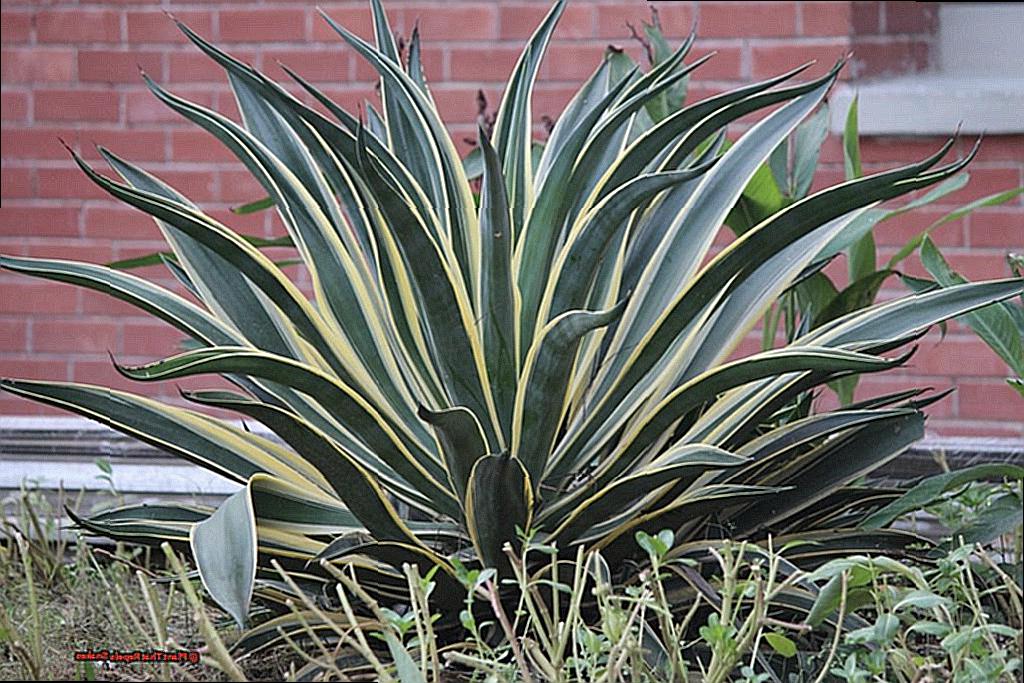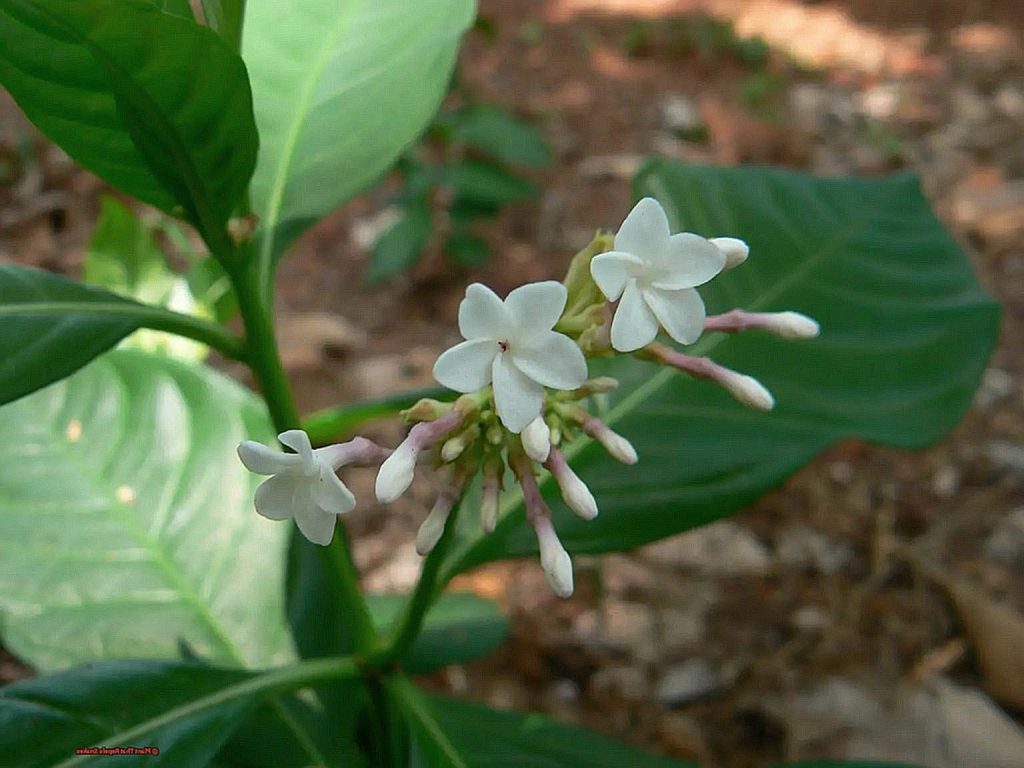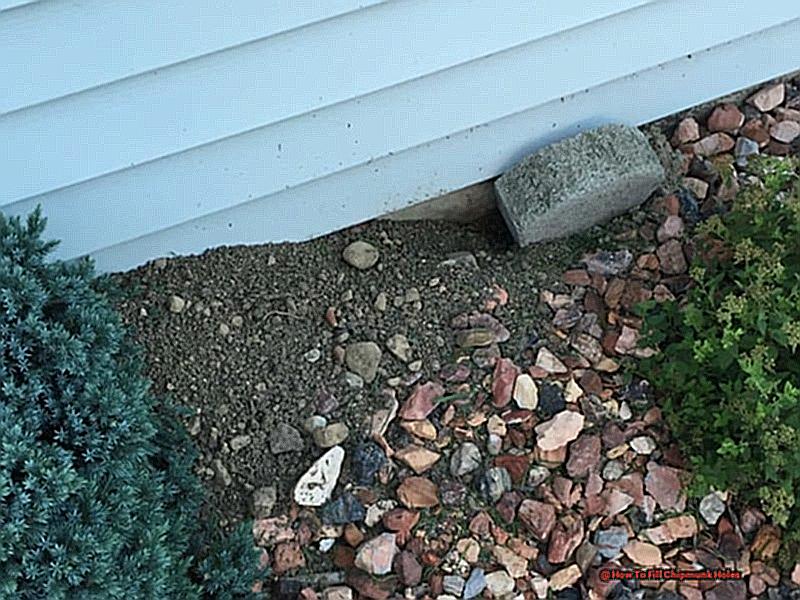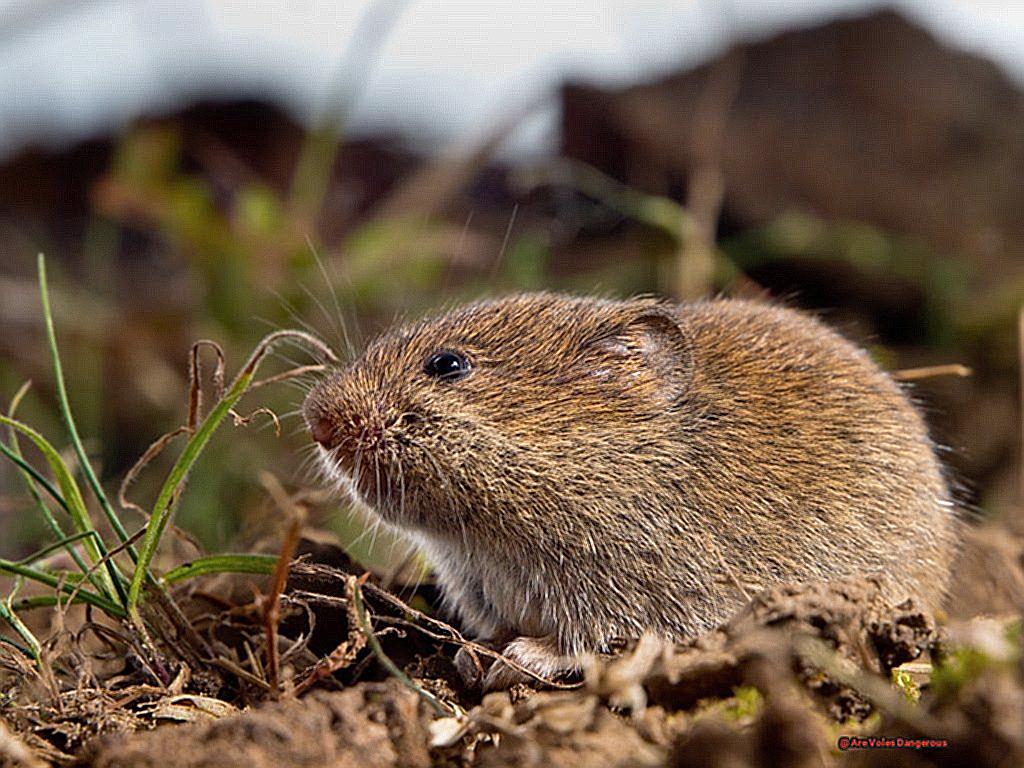Are you tired of constantly fretting over the possibility of snakes slithering into your yard or garden? In this enlightening blog post, we will be discussing a natural and effective solution to keep these slithery creatures at bay – snake-repelling plants.
Not only will these plants provide you with peace of mind, but they will also add a touch of beauty to your outdoor space. Get ready to discover the power of these plants in protecting you and your loved ones from unwanted encounters with snakes.
- Uncover the most common types of snakes found in residential areas
- Learn how certain plants emit scents or toxins that repel snakes
- Find out which plants are easy to cultivate and maintain, suitable for all levels of gardening experience
- Understand the importance of creating a snake-free environment, especially for children and pets
- Gain knowledge on natural and eco-friendly methods to deter snakes without causing harm
Bid farewell to expensive and harmful chemicals, and welcome a gorgeous and safe outdoor space with these snake-repelling plants. Let’s delve into the fascinating world of these powerful plants together.
Table of Contents
- 1 Plant That Repels Snakes?
- 2 The History of Using Plants to Repel Snakes
- 3 Characteristics of Effective Snake-Repelling Plants
- 4 Marigolds: A Natural Barrier Against Snakes
- 5 Lemongrass: An Aromatic Deterrent for Snakes
- 6 Garlic: A Tasty Defense Against Snakes
- 7 Other Plant Options for Keeping Snakes Away
- 8 Conclusion
Plant That Repels Snakes?
There are various natural plants that have the ability to repel snakes, such as marigolds, lemongrass, garlic, holly, agave, and cacti.

These plants possess either a strong scent or taste that snakes find unpleasant, making them an effective method of keeping these bothersome creatures away from your home or garden. Other key characteristics to look for in snake-repellent plants include tall, thick foliage and sharp leaves.
It is imperative to conduct thorough research and carefully select the right plants for your specific needs in order to successfully ward off snakes.
The History of Using Plants to Repel Snakes
For centuries, humans have lived in fear of snakes and have sought ways to protect themselves from these dangerous creatures. One method that has been explored is the use of plants to repel snakes.
Although there is no scientific proof that plants can repel snakes, there are steps that can be taken to make yards less inviting for both snakes and their prey. These include clearing debris, cutting grass shorter, installing snake fencing, sealing small openings, filling in rodent burrows, and removing standing water.
However, when it comes to dealing with a venomous snake, it is always best to call a pest control or snake removal expert for assistance.
The Evolution of Using Plants to Repel Snakes:
Throughout history, humans have used various methods to protect themselves from snakes. In ancient times, people believed that certain plants had the power to keep snakes away due to their strong scents or unappetizing taste.
For instance, marigolds were commonly planted around homes and gardens in India to repel snakes. Lemongrass was also believed to have a repelling effect on snakes due to its strong citrus scent. Garlic was another plant thought to deter snakes because of its pungent smell.
However, as our understanding of snake behavior and biology has grown, it has become clear that snakes are not bothered by plants. They primarily follow their prey and will not be deterred by strategically-placed plants. In fact, some experts argue that certain plants may even attract snakes by providing shelter for their prey.
Despite the lack of scientific evidence, the belief in the power of plants to repel snakes persists in many cultures. In India, for example, snake charmers still use marigolds and other plants as part of their traditional rituals to ward off snakes.
Modern Methods of Snake Deterrence:
While using plants as a method of snake deterrence may not be effective, there are other steps that can be taken to make yards less appealing to snakes. Clearing debris and cutting grass shorter can decrease hiding spots for snakes and their prey.
Installing snake fencing around the perimeter of a yard can also act as a barrier, although it is not foolproof as snakes are capable climbers.
Sealing up small openings, such as gaps under doors or holes in walls, can also prevent snakes from entering homes. Additionally, filling in rodent burrows can help minimize the number of snakes in yards, as rodents are a common food source for snakes. Removing standing water can also discourage snakes from staying in yards, as they need a water source to survive.
In cases of dealing with a venomous snake, it is best to seek the help of a pest control or snake removal expert. These professionals have the knowledge and equipment to safely remove the snake and prevent future encounters.
Characteristics of Effective Snake-Repelling Plants
Plants that are good at keeping snakes away have a number of important traits that work together to keep these slippery animals from getting into your property. Some of these traits are strong smells, the ability to hide, toxins, size and shape, and the presence of food sources. Because of these things, your land is not an attractive place for snakes to live, so they are less likely to come there.
Plants with strong smells, like lemongrass or lavender, can be very good at keeping snakes away. They have strong smells that are too strong for snakes’ sensitive noses to handle, making it hard for them to find their food. Also, plants that can naturally blend in with their surroundings, like ferns and ivy, can help hide food sources and make it harder for snakes to find them.
Another important thing about plants that can keep snakes away is that they can be poisonous. Some plants, like marigolds and garlic, make poisons that are bad for snakes if they eat them. They are less likely to eat these plants and are also more wary of the area around them.
How well plants work against snakes can also depend on their size and shape. Large, thick plants, like bushes and trees, give snakes’ food lots of places to hide and can even bring them to your land. Snakes, on the other hand, don’t like places with few or no trees because they are more open and vulnerable.
Lastly, making sure snakes can’t get to food is a very important thing to do. Plants that are good at attracting bugs or mice can also be good at attracting snakes. Because these animals don’t eat certain plants, you can make it less likely that snakes will come to your land.
Marigolds: A Natural Barrier Against Snakes
Putting marigolds around your home is a great natural way to keep snakes away. There are a few things about them that make them good barriers against these crawling things.
To begin, marigolds give off a strong smell that snakes don’t like, making it unpleasant for them to stay close. Also, these flowers make a chemical that is poisonous to snakes and keeps them away naturally. In addition to these traits, marigolds have a special root system that makes it hard for snakes to move around. This adds another layer of defense.
Having marigolds in your yard is also good because they bring good bugs that eat snakes, which helps keep the number of snakes in check. Having all of these things together makes marigolds a great natural way to keep snakes away.
Having snakes near your home can be scary because they are known to make people feel uneasy and scared. I remember the first time I saw a snake in my backyard. I was weeding when all of a sudden something touched my leg. A snake was moving away when I looked down. After that, every time I went outside, I felt nervous. until I learned how powerful marigolds are.
Putting marigolds around the edges of my garden was a great idea that turned out beautifully. The strong smell kept snakes away, and I also saw fewer spiders, bugs, and other pests. My yard looked beautiful with the bright orange and yellow flowers, and they also kept snakes out naturally. I no longer have to worry about running into another snake every time I go outside to enjoy my area.
Plant some marigolds if you want to keep snakes away from your property in a natural way that works. Not only do they look nice, but they also provide a unique defense against these snakes. They are also simple to grow and take care of, which makes them a useful addition to any yard.
Lemongrass: An Aromatic Deterrent for Snakes
People often use lemongrass to keep snakes out of their fields and homes, and it works very well because it has a strong smell that snakes don’t like. This grass-like plant has a pleasant, citrusy smell that is known to make people feel better. Aromatherapy uses its essential oil a lot because it can calm people down and relieve stress.
However, lemongrass has more to offer than just a nice smell. It also has citronella in it, which is a natural bug spray that snakes, mosquitoes, and other pests don’t like. This makes it a great choice for people who don’t want to use dangerous chemicals to keep snakes out of their fields and houses.
In addition to having a nice smell, lemongrass is also a good choice for keeping snakes away because it doesn’t need much care. Snake-friendly spots include stairs, patios, and decks. Additionally, lemongrass is a plant that grows and spreads quickly, which makes it an easy and inexpensive option for many.
If you want to keep snakes away naturally, you can use plants other than lemongrass. Some of these are onions, garlic, and marigolds, all of which have strong smells that snakes don’t like. All of these plants do useful things and look nice in any yard.
Organic repellents, like lemongrass, are better for the earth and your wallet than chemical ones. Chemical repellents are more expensive and don’t work as well, and they can hurt animals and insects that are good for you.
Some people might say that some snakes are good for gardening because they keep pests under control, but others are dangerous to people and should be avoided. A simple option that works quickly and won’t break the bank is to plant lemongrass or other plants that keep pests away.
This is a headline:A tasty way to protect yourself from snakes is to eat garlic.
With its strong smell and high sulfuric acid content, garlic is a natural way to keep snakes away. This acid, which is similar to the acid in onions and makes our eyes water, comes out when garlic is or crushed. Snakes, on the other hand, are very sensitive to this acid, so they stay away from places that have been cleaned. This method keeps snakes out of your yard and home without using poison. It’s also easy and works well.
Snakes have been a problem in fields and homes for a long time, but garlic can keep them away so well that you don’t need to use dangerous chemicals or expensive traps. If you put garlic around your outdoor space, you can make it impossible for snakes to live there. This will protect your property and family from harm.
If you want to use garlic to scare away snakes, you need to know what it does and how it affects these slippery animals. There is a wall around your yard or home that snakes won’t want to cross if you crush or slice garlic and put it in strategic places. This natural way not only saves you money, but it also keeps you from using poisons that are bad for the world.
Garlic not only keeps snakes away, but it is also good for you in many ways, making it an important and useful item in any home. Traditional medicine has used it for hundreds of years because it has strong anti-inflammatory and immune-boosting qualities. So garlic is not only a tasty way to protect yourself from snakes, it’s also a tasty and healthy way to add to your diet.
Finally, garlic is very effective against snakes because it has a strong smell and is full of sulfuric acid. By placing this natural ingredient in specific places around our fields and homes, we can keep them safe and snake-free while also getting an array of health benefits.
Garlic: A Tasty Defense Against Snakes
Garlic, with its potent aroma and high sulfuric acid levels, serves as a natural defense against snakes. When garlic is crushed or sliced, it releases this acid – similar to the one found in onions that makes our eyes water. However, this acid is extremely irritating to snakes, causing them to steer clear of treated areas. Not only is this method non-toxic, but it also provides a simple and effective way to keep snakes at bay in your home and garden.
Snakes have long been considered a threat to gardens and homes, but with garlic’s powerful repelling properties, there is no need for harmful chemicals or expensive traps. By incorporating garlic into your outdoor space, you can create an environment that is uninhabitable for snakes, protecting your property and loved ones from potential harm.
To effectively utilize garlic as a snake deterrent, it is important to understand its properties and how it affects these slithery creatures. By crushing or slicing garlic and placing it in strategic locations around your garden or home, you can create a barrier that snakes will not want to cross. This natural method not only saves you money but also avoids the use of harmful chemicals that can have negative impacts on the environment.
In addition to keeping snakes at bay, garlic also offers numerous health benefits for humans, making it a versatile and essential ingredient in any kitchen. Its potent anti-inflammatory and immune-boosting properties have been used for centuries in traditional medicine practices. So not only does garlic serve as a tasty defense against snakes, but it also serves as a flavorful and beneficial addition to our diets.
In conclusion, garlic proves to be a formidable opponent against snakes due to its strong smell and sulfuric acid content. By utilizing this natural ingredient in strategic locations around our homes and gardens, we can create a safe and snake-free environment while also reaping the numerous health benefits it offers.
Other Plant Options for Keeping Snakes Away
Snakes will be less likely to come onto your land if you use plants like Indian Snakeroot, West Indian Lemongrass, Garlic Vine, Mother-in-Law’s Tongue, and Pitcher Plant. Snakes may stay away from these plants, and they can also add some green to your outdoor area.
Indian Snakeroot is a shrub that grows naturally in India and Southeast Asia. It is also known as Rauvolfia serpentina. Traditional Ayurvedic medicine uses it because it calms and sleeps people down. But because it has a strong smell, snakes stay away from it, which makes it a great plant to have in your yard.
Cymbopogon citratus, or West Indian Lemongrass, is another choice. It is native to India and Sri Lanka. This plant has a strong citrus smell that snakes don’t like, so it works well to keep them away. You can use it in cooking or to make tea, and it’s also easy to grow.
The Garlic Vine, whose scientific name is Mansoa alliacea, is a growing plant with tiny white flowers that look like garlic bulbs. It looks nice in your yard and keeps snakes away with its strong garlic-like smell. Traditional medicine also uses this plant because it can reduce inflammation.
You can grow Mother-in-Law’s Tongue (Sansevieria trifasciata) outside as well as inside. It looks nice in any yard because its leaves are long and tall, and the tips are yellow. But what’s more important is that it gives off a smell that keeps snakes and other bugs away.
Finally, the Pitcher Plant, also known as Nepenthes spp., is a unique plant that is famous for its ability to catch bugs. With a sweet smell, its pitcher-shaped leaves draw bugs in and trap them inside. The strong smell of this plant can also keep snakes away.
Conclusion
In conclusion, the fear of snakes can be a constant concern for homeowners, but there is a natural and efficient solution – plants that repel these slithery creatures.
Not only do these plants emit scents or toxins that deter snakes, but they also enhance the aesthetic appeal of your outdoor space. By understanding the common types of snakes found in residential areas and the importance of maintaining a snake-free environment, you can choose from a variety of easy-to-grow plants suitable for all levels of gardening expertise.





